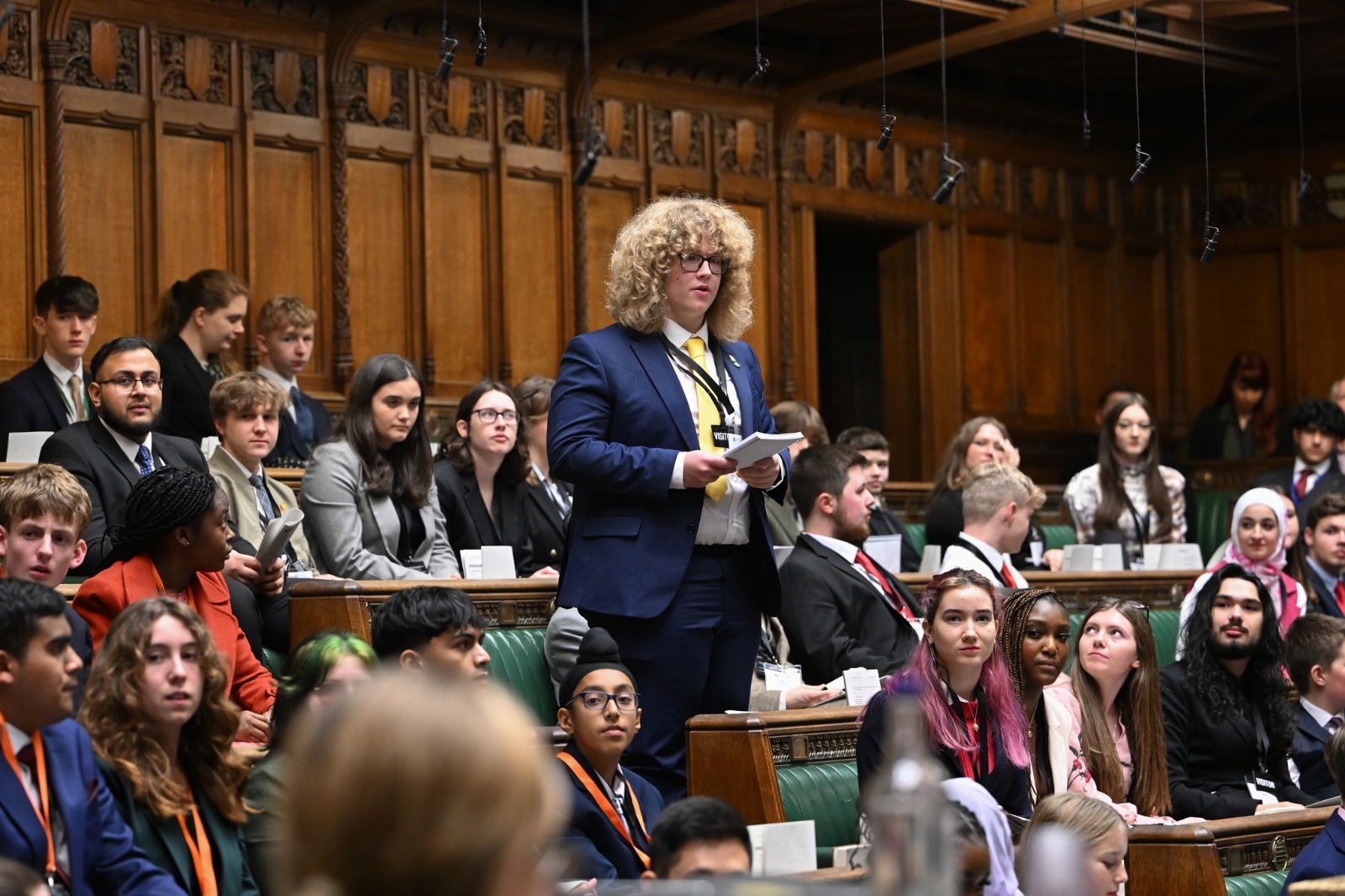Starting out in politics at the tender age of 18 has been a baptism of fire for Liberal Democrat councillor Tom Penketh
Penketh, a funeral director, felt that he could represent his community well after he won a seat on Shaw and Crompton Parish Council, near Manchester, last year. It wasn’t his first venture into politics. By the time he was sitting his A-Level exams and campaigning for elections, the buoyant, mop-haired youngster had already been a member of the Liberal Democrat Party for two years.
His natural optimism, however, has been tempered by his experience in his first year as an elected representative. Other councillors sometimes speak down to him and ignore what he says. When people do listen, he feels that he faces more intense scrutiny, simply because of his age.
“Opposition’s healthy,” he says. “You’re going to have disagreements. You’re not going to want the same thing or to get it done the same way. But then it gets personal.”
While some people prefer their politicians to have had plenty of life experience, the current impasse in the US, with two unpopular elderly candidates battling to be president, shows that there is a limit.
As one of the UK’s youngest councillors, Penketh is one of the country’s few young politicians. Just 3 per cent of MPs elected in the last general election in 2019 were aged between 18 to 29, even though young adults make up almost a fifth of the UK’s population.
This lack of representation contributes to low turnout among young voters, Penketh claims. At the last general election, the 18-24 and 25-34 voting groups had almost 25 per cent lower turnout than voters aged 65 and over.
Penketh also thinks young people are deterred from going into politics after seeing how young politicians are mistreated. Mhairi Black, who was the youngest MP when she was elected at 20 in 2015, has blamed Westminster’s toxic environment for her decision not to stand in the upcoming general election, although some suggest she stepped aside because of the high likelihood she could lose her seat.
Young politicians are also less likely to be financially independent than their older colleagues, so they feel the financial burdens of a political career more acutely. While MPs are paid £91,346 annually, councillors receive limited compensation.
According to the Local Government Association, the average councillor spends 22 hours a week on council business and receives around £7,000 a year.
Ria Patel, a 22-year-old Green Party Councillor from Croydon Council, finds this difficult, even as someone from a middle-class background.
“I’m quite lucky that I was able to move back home. I live with my mum, so I don’t currently have to pay rent,” they say, chuckling. “I would love to move back out, but that’s a work in progress.”
Even when young politicians progress they encounter obstacles, says Emma Roddick, a Member of Scottish Parliament (MSP) for the Scottish Nationalist Party.
Roddick was a councillor from 2019 before she was elected as MSP for the Highlands and Islands region at 23, making her the youngest MSP at that time. Two years later, she was appointed Minister for Equalities, Migration and Refugees, where she remained until last month when the First Minister’s resignation triggered a reshuffle.

“I had to work a lot harder and be more impressive than others straight away just to be considered competent,” she says.
Despite her rapid climb, her colleagues still talk over her and answer for her, she claims.
“They seem to think they’re doing me a favour. It gets very annoying!”
Roddick also feels pressure to constantly address youth issues. While it is something that she is passionate about, it leaves less time to represent young people in other policy debates, including on housing.
“Yes, it’s great to platform young voices as young voices, but make sure they still have the time to attend their work and prepare to be around the boardroom table with their professional peers and feed into all these other discussions.”
Penketh says that despite these challenges, he’s glad to be a politician. His excitement is palpable.
“I want to do it more than ever,” he says. “When I get on to the Borough Council, I’ll have a louder voice for a bigger area. Maybe I’ll even be an MP one day.”
Tom Penketh at the UK parliament. Photo credit: Maria Unger UK Youth Parliament

